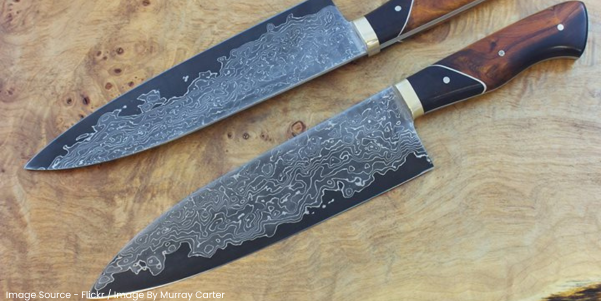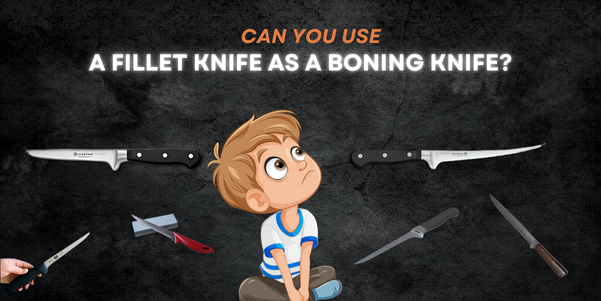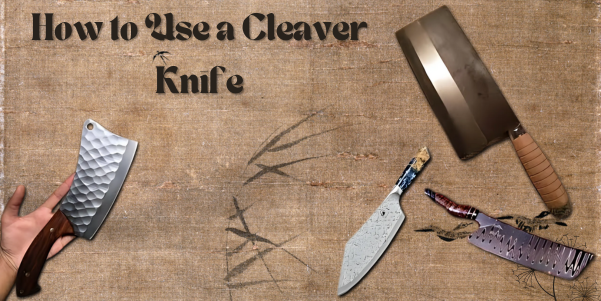Damascus steel kitchen knives are renowned for their striking patterns and exceptional durability. How to clean Damascus steel kitchen knife is crucial to maintaining its beauty and functionality. Damascus steel, known for its layered structure, demands proper care to preserve its distinctive look and ensure it remains rust-free. This article will explore how to clean and maintain your Damascus steel knife, ensuring it stays in top condition for years.
Table of Contents
Understanding Damascus Steel
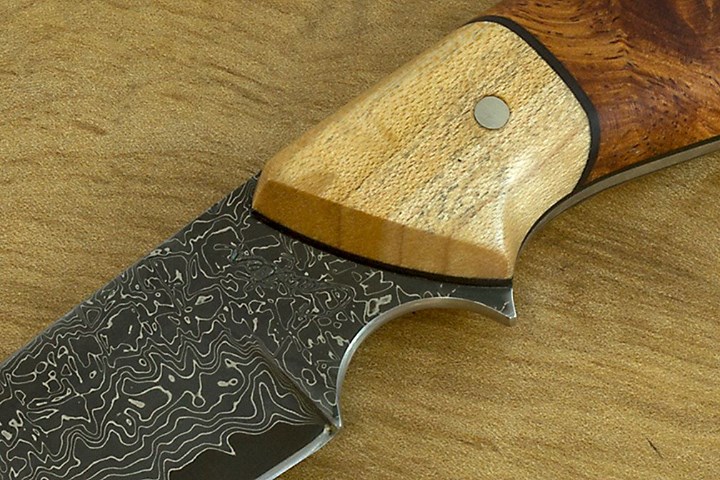
Damascus Steel is famous for its beautiful, wavy patterns created by layering different types of carbon steel. This unique construction enhances its strength and contributes to its aesthetic appeal. The high carbon content in Damascus steel provides superior edge retention and durability. However, the knife’s maintenance is vital to prevent rust formation and ensure its longevity.
How to Clean Damascus Steel Kitchen Knife
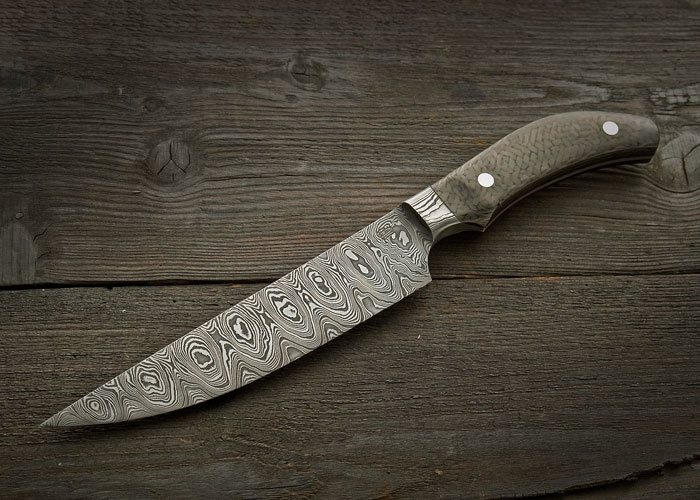
Proper cleaning of your Damascus steel kitchen knife is essential for preserving its condition. To clean a Damascus steel knife:
- Use Mild Detergent: Wash the blade with a diluted dishwashing detergent to remove any food particles or corrosive substances. Avoid harsh chemicals or abrasives, as they can damage the knife’s surface and affect its durability.
- Dry Immediately: After washing, dry the knife thoroughly with a soft cloth. Leaving the blade wet can lead to moisture buildup and corrosion. Ensure the blade is completely dry before storing it.
- Avoid Dishwashers: Never place Damascus steel knives in a dishwasher. The high moisture and aggressive detergents can damage the blade and lead to rust.
How to Store Damascus Knives
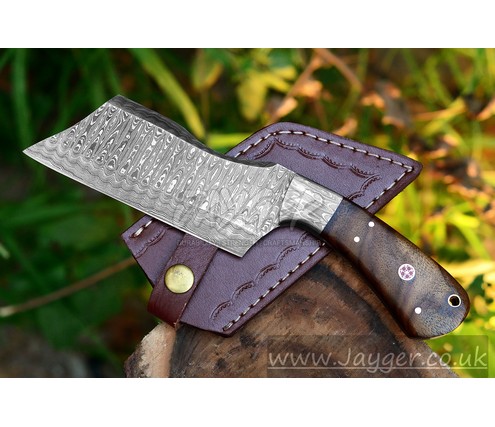
Proper storage is crucial to prevent moisture and humidity from causing damage. To store Damascus knives:
- Use a Knife Block or Magnetic Strip: Store the knife in a dry environment, either in a knife block or on a magnetic strip, to protect it from external elements.
- Consider a Zipper Case: For added protection, especially during long-term storage, wrap the knife in a padded zipper case or a protective sleeve to avoid moisture exposure and accidental damage.
Oil Application for Damascus Steel
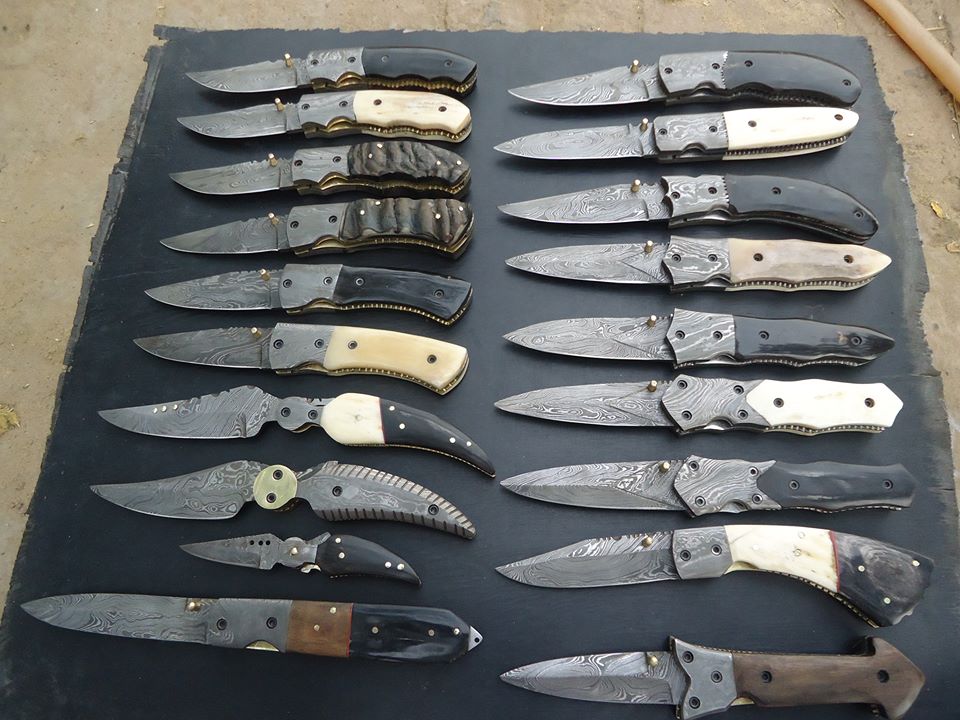
Regular oiling helps protect your knife from corrosion and extends its life. When choosing what oil to use on Damascus steel:
- Food-Grade Oils: Use mineral oil or beeswax for regular maintenance. These oils create a protective layer that prevents rust and discoloration.
- Avoid Rancid Oils: Cooking oils can become rancid over time, leading to a sticky residue on the blade. Opt for high-quality knife oils or museum wax for long-term storage.
How to Clean Rust Off Damascus Steel
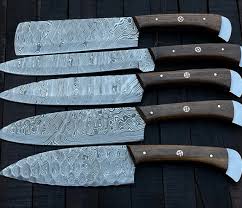
If your Damascus knife develops rust, it can be cleaned using the following method:
- Baking Soda and Vinegar: Soak a cloth in white vinegar, then dab it in baking soda. Gently rub the rusted area with the cloth to remove the rust. This method is effective for removing surface rust without damaging the blade.
- Regular Maintenance: To prevent rust, ensure the knife is always cleaned and dried thoroughly after use and regularly oiled.
Preventing Rust Formation
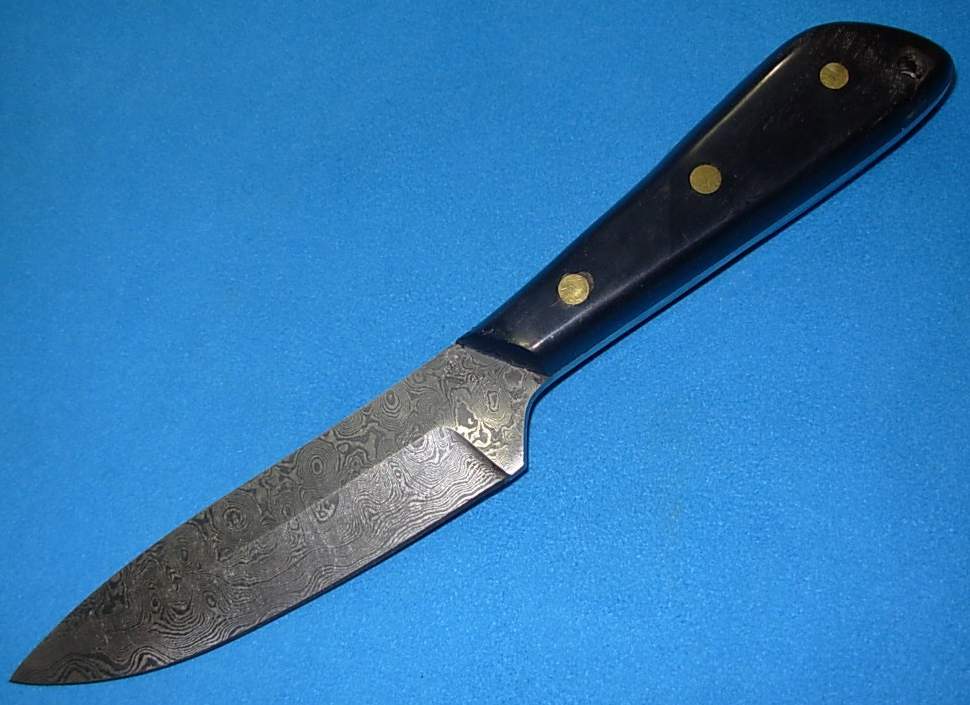
To keep Damascus steel from rusting, follow these tips:
- Regular Cleaning and Drying: Consistent maintenance prevents rust formation and ensures the knife remains in optimal condition.
- Proper Storage: Store your knife in a dry environment and use appropriate storage solutions to avoid exposure to humidity and moisture.
Summary
In summary, cleaning a Damascus steel kitchen knife involves careful cleaning, proper storage, and regular oiling. By following these guidelines, you can maintain the knife’sknife’s prestige and ensure its longevity. Adhering to these best practices will also protect your Damascus knife from rust formation and corrosion.

